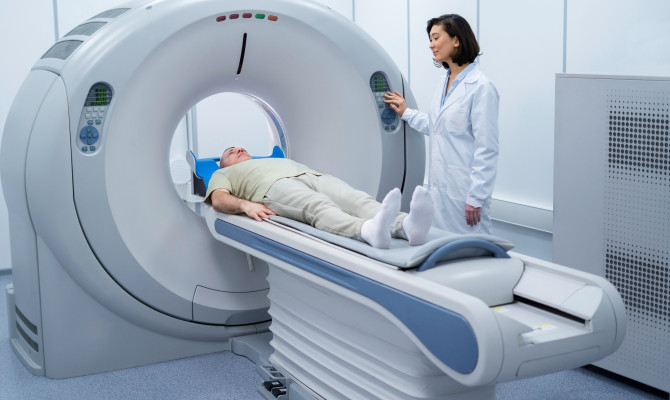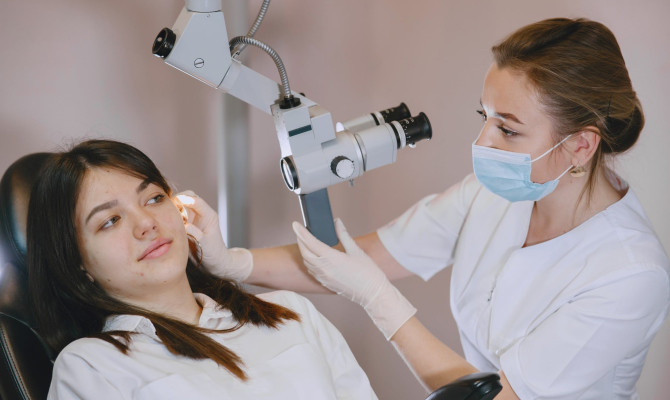Autoimmune Disorders: A General Overview

- Autoimmune Disorders
- 14 Aug 2023
Overview
What is an autoimmune disorder?
When the immune system of the body unintentionally targets healthy cells and tissues, an autoimmune disorder can emerge. These illnesses can be mild or life-threatening and impact any body part.
It is believed that 23.5 million Americans are afflicted by this group of illnesses, which are widespread. Men are less likely to be impacted than women. Some diseases, like lupus and rheumatoid arthritis, are more common in particular ethnic communities. 1What is autoimmune disorder?| Researched based study from nih.gov
Overview of the immune system
Protecting the body from dangerous pathogens like bacteria, viruses, and fungi is the duty of the immune system. It comprises a variety of cells, tissues, and organs, such as lymph glands, spleen, and white blood cells.

Causes
What are the Causes?
Autoimmune diseases have complex and poorly understood causes. Hormonal, environmental, and genetic factors are just a few of the factors in effect.
Genetic factors
- Since autoimmune disorders commonly run in families, there is probably a genetic factor to consider.
- Certain autoimmune disorders are more likely to occur when specific genes are present.
- Having these genes does not guarantee that an individual will develop the disorder, as environmental variables could also be in effect.
Environmental factors
The following environmental factors may have an effect on people who have a genetic predisposition to autoimmune disorders:
- Viruses, bacteria, and other organisms can cause infections that can lead to the onset of autoimmune diseases.
- Exposure to toxins, like herbicides and solvents, may make you more likely to get autoimmune diseases.
- According to some research, certain dietary elements may help autoimmune diseases evolve.
- In vulnerable people, exposure to sunlight and other ultraviolet radiation sources can cause autoimmune diseases.2Causes of autoimmune diseases| Researched based study from nih.gov
Hormonal factors
- Because autoimmune diseases affect women more frequently than males, there may be a hormonal factor.
- Oestrogen and progesterone are two hormones that can impact the immune system and increase the risk of developing autoimmune diseases.
- A woman’s pregnancy and other hormonal changes may cause an autoimmune disease to develop or worsen.3Causes of autoimmune diseases | Researched based study from womenshealth.org
Classification
What are the common Autoimmune disorders?
Rheumatoid arthritis
- An autoimmune condition that results in persistent joint inflammation, discomfort, stiffness, and swelling.
Systemic lupus erythematosus
- Skin, joints, kidneys, and the nervous system are just a few of the body parts that are impacted by this disease.
Multiple Sclerosis
- Affects the central nervous system and can result in various symptoms, such as coordination issues, muscular weakness, and vision loss.
Type 1 Diabetes
- High blood sugar levels result from the immune system attacking and destroying the pancreatic cells that produce insulin.
Inflammatory Bowel Disease
- It results in weight loss, diarrhoea, and chronic abdominal pain by causing chronic inflammation of the digestive system.
Graves’ disease
- Hyperthyroidism is a condition brought on by an autoimmune disease that over activated the thyroid gland.
Sjogren’s disease
- This condition causes dry mouth and eyes by affecting the moisture glands, such as the salivary and tear glands.
Celiac disease
- Gluten, a protein in wheat, rye, and barley, triggers an immune response that harms the small intestine’s membrane.
Symptoms
What are the Symptoms associated?
The symptoms of autoimmune disorders can vary greatly based on the particular condition and the organs or tissues affected, and they can affect any part of the body. However, a number of illnesses may show some common symptoms. the symptoms’ main elements are as follows:
General symptoms
- Fatigue
- Joint pain and stiffness
- Muscle weakness
- Fever
- Skin rash
- Epidermis and dry hair
- Swollen glands
- Weight loss or gain
- Difficulty concentrating or thinking clearly
- Digestive issues, such as abdominal pain and diarrhoea
- Sensitivity to cold or heat 4Symptoms| Researched based study from Autoimmune.org
- Oral Ulcers
- Eye’s irritation
Diagnosis
What are the Diagnostic factors?
Medical History
- The doctor will question the patient regarding their medical history, including any autoimmune diseases that may run in their family, recent infections or illnesses, and any medications or dietary supplements they are taking.
Physical inspection
- A physical examination will be conducted to check for inflammation-related symptoms like warmth, swelling, or redness in joints, the skin, or other body parts.
Blood tests
They help to determine if an autoimmune disease is present by looking for specific antibodies and proteins. Routine blood exams consist of:
- The antinuclear antibody test (ANA)- It looks for antibodies that target the cell nuclei.
- The C reactive protein test (CRP)- This test evaluates the quantity of a protein that rises during inflammation and is associated with inflammatory disorders.
- Erythrocyte Sedimentation Rate (ESR)- The rate at which red blood cells settle in a container during an erythrocyte sedimentation rate examination indicates the degree of inflammation within the body.
- Rheumatoid factor- It is used to examine the body for the existence of antibodies that target the rheumatoid factor protein.
Scans
- X-rays, CT scans, and MRIs are examples of imaging tests that can be used to look for indications of inflammation or damage in the body.
Biopsy
- In some circumstances, a biopsy may be required to corroborate a diagnosis. It involves removing a tiny piece of tissue from the injured area and examining it under a microscope to look for signs of damage or inflammation.
Auto-antibody Panels
- It is possible to check for particular antigens linked to autoimmune diseases like lupus or sclerodermas using autoantibody panels.
- Genetic research can be used to find particular genetic mutations linked to autoimmune poly endocrine syndrome type 1 case (APS-1). 5What are the diagnostic factors? | Researched based study from nih.gov
Treatment

What are the Treatment strategies?
Medications
- Non-steroidal anti-inflammatory drugs, or NSAIDs, can lessen discomfort and inflammation.
- Strong anti-inflammatory medications, such as corticosteroids, can reduce inflammation and impair immunity.
- Anti-rheumatic medications with disease-modifying properties can delay the onset of autoimmune illnesses and stop joint damage.
- Biologics specifically target immune system components or proteins linked to autoimmune disorders.
- Immunomodulatory medications prevent the immune system from attacking healthy cells by regulating it.
Lifestyle changes
- A nutritious diet can promote overall health by reducing inflammation. Fruits, veggies, whole grains, and healthy fats are foods that reduce inflammation.
- Exercise regularly can improve joint mobility, lower inflammation, and elevate mood.
- Deep breathing, yoga, and other stress-reduction methods can help lower stress and inflammation.
- The importance of getting enough sleep for overall well-being.
Alternative therapies
- Acupuncture is a traditional Chinese medicine that involves inserting needles into particular body points to promote healing and alleviate pain.
- Massage treatment can ease muscle tension, increase circulation, and encourage relaxation.
- Supplements like omega-3 fatty acids, turmeric, and probiotics could support immune system health and decrease inflammation.
- Herbal remedies with anti-inflammatory and immune-boosting qualities include ginger, garlic, and Echinacea. 1What are the treatment strategies?| Researched based study from nih.gov
Prevention
What are the Preventive factors?
Lifestyle factors
- Maintain a healthy diet and exercise routine. Eating a balanced diet of fruits, vegetables, whole grains, and lean protein sources can aid the body’s immune system by reducing inflammation.
- A healthy weight, stress management, and inflammation reduction can all be helped by regular exercise, which is crucial in avoiding autoimmune diseases.
- Manage your stress, long-term stress can impair immune function and increase the risk of autoimmune diseases.
- Quit smoking, it can harm the immune system and cause inflammation, which increases the chance of developing autoimmune diseases.
Environmental factors
- Exposure to environmental toxins like pesticides, heavy metals, and chemicals can increase the danger. Taking action to lower exposure, such as consuming organic food and natural housekeeping products.
- Get enough rest; a lack of sleep lowers immunity and increases the risk of having disorders.
- Sleeping enough each night, usually, 7-9 hours, can support the immune system and lower this risk.
- Consume alcohol in moderation; excessive alcohol intake can impair immunity and raise the risk of disorders. Alcohol consumption restrictions can help to lower this danger.
Vaccination
- Vaccines can help avoid infections that may cause autoimmune disorders, so get vaccinated. For instance, the HPV vaccine can protect against cervical cancer linked to lupus, an inflammatory disease.
- Follow vaccination advice; getting the flu shot annually can help lower the chance of infection that could set off autoimmune disorders.
Takeaway
Key Takeaways
- Around 5–10% of people globally suffer from autoimmune disorders.
- Over 80 different autoimmune disorders exist, some of which include type 1 diabetes, lupus, multiple sclerosis, and rheumatoid arthritis.
- Although the exact causes of autoimmune disorders are unclear, it is thought that both genetic and environmental factors play a role.
- Depending on the type of disorder and the organ or tissue affected, the symptoms of autoimmune diseases can differ significantly.
- Medications to control symptoms and inhibit the immune system are frequently used with lifestyle modifications to lessen inflammation and enhance general healing.
- Advances in genetic and molecular testing are opening the door to personalized medical techniques.
- Creating reliable biomarkers could aid in the early detection, diagnosis, and tracking of disease action. Additionally, helpful in forecasting disease progression and therapeutic reaction are biomarkers.
- Immunotherapy is a potential strategy to suppress inflammation and avoid tissue damage by modifying the immune system.
- More study into the role of infections, toxins, and diet in the onset and progression of autoimmune disorders could result in novel preventative and therapeutic approaches.
- Providing patients with information and encouragement is essential for managing symptoms, avoiding complications, and enhancing the quality of life.
Any feedback on this article?
 This Articles content was accurate
This Articles content was accurate Very Informative Article
Very Informative Article I have a question or a comment
I have a question or a comment
 This article contains inaccurate content
This article contains inaccurate content This article was not helpful
This article was not helpful I have a question or a comment
I have a question or a comment
We appreciate your helpful feedback!
Checkout our social pages
References
-
National Institutes of Health
Autoimmune Diseases | Overview | Alternative therapies
-
National Institutes of Health
Autoimmune Diseases | Causes | Environmental factors
-
U.S. Department of Health and Human Services
Autoimmune Diseases | Causes | Hormonal factor
-
Autoimmune Association
Autoimmune Diseases-List | Symptoms
-
National Institutes of Health
Diagnostic testing and interpretation of tests for autoimmunity
-
National Institutes of Health
The treatment strategies of autoimmune disease may need a different approach from conventional protocol: A review



































